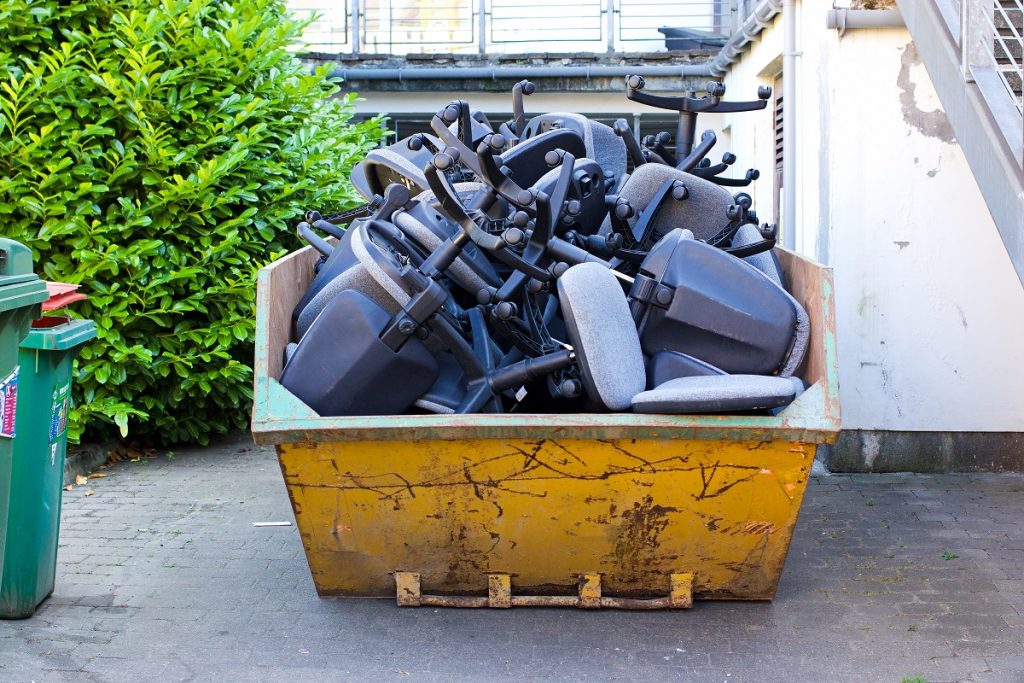When you terminate a remote employee, or they leave voluntarily, you must retrieve company equipment that you will reuse for other remote employees. Companies need a policy that covers the return of equipment, employees must be aware of it, and you must enforce it fairly.
As more and more companies adopt remote work policies, collecting company-owned equipment from a remote employee has become an increasingly common task. Whether an employee leaves the company voluntarily (or you fire them), transfers to a new position, or simply upgrades their equipment, knowing how to collect equipment from a remote employee can present a unique set of challenges.
Fortunately, with careful planning and clear communication, collecting equipment from a remote employee efficiently and respectfully is possible.
This article provides a step-by-step guide to collecting equipment from a remote employee, including tips for communicating effectively, preparing for the collection, and ensuring the process goes smoothly. By following these guidelines, your equipment collection process will maintain a positive relationship with your remote employees.
Table of Contents
Do Companies Provide Equipment For Remote Workers?
Some companies provide equipment, such as laptops, monitors, and headsets, for their remote workers to ensure they have the tools to perform their duties. Other companies may require their remote workers to provide their own equipment or offer a stipend to purchase necessary equipment.
Ultimately, it is up to the company to decide whether they will provide remote workers with equipment. It depends on company policy and the nature of the job.

What Happens To Equipment Provided For Remote Workers When They Are Fired Or Leave The Company?
When a remote worker leaves a company, the equipment provided by the company may need to be returned, depending on the company’s policy. The worker may be required to return the equipment to the company, or the company may arrange for a pickup or shipping.
If the equipment is not returned, the company may withhold the value of the equipment from the worker’s final paycheck or pursue legal action. Some companies may allow remote workers to purchase the equipment if they wish to keep it.
Developing Company Policy On Equipment Returns
Developing a company policy on equipment returns for remote workers is essential to ensure that the company’s property is protected and returned in a timely manner. The policy should outline the process for giving back equipment, the condition in which it should be returned, and any consequences for failure to return the equipment.
Whether everything bought for employees to work remotely should be returned depends on company policy. The policy should spell out which items the employee must return and what they can keep.
This policy should be communicated clearly to all employees so they understand their obligations and rights regarding company property. The policy should be fair and practical, considering the logistical challenges of retrieving and storing large or bulky items.
What Usually Needs To Be Returned?
When developing a company policy on equipment returns, you must define what items must be returned. This may include any equipment or property the company provides, such as laptops, monitors, phones, or other electronic devices.
It may also include physical items such as office keys, security badges, and any proprietary documents or materials to the company. Paperclips and other small office supplies are usually not considered company property and are not monitored.
Which Items Bought With A Stipend Do Employees Have To Return?
If a team member receives a stipend to purchase equipment, what they bought is generally considered their property, and they are not required to return it when they leave the company.
However, if the team member leaves the company before spending all the stipend, they may be required to return the remaining funds or reimburse the company for any unspent portion of the assistance.
In Practice
In practice, it may be difficult or impractical for the company to retrieve or store certain items, especially if they are large or bulky. Therefore, it may be more practical for the company to allow employees to keep these items unless exceptional circumstances justify their retrieval. Companies should include specific guidance on this matter in their equipment return policy.
During Covid, companies may have issued computer equipment and helped employees buy desks and other office equipment. They may want the computers back but have no desire to collect a warehouse of used desks and chairs.

What If An Employee Wishes To Buy The Equipment The Company Wants Returned?
If an employee wants to keep equipment the company would like back, they may be able to buy it if both parties agree to the purchase terms. The company should ensure that the purchase price is reasonable and reflects the current value of the equipment.
Additionally, the company may require the team member to sign a release of liability, indemnifying the company against any future claims related to the equipment. Finally, the company should ensure that the team member complies with any applicable tax laws related to purchasing company property.
How Do You Ask For A Company’s Equipment Back?
When requesting a company’s equipment back, you must communicate clearly and professionally. Start by sending a polite email or letter requesting the return of the equipment, and provide a deadline for its return. If the employee has not returned the equipment by the deadline, follow up with a phone call or in-person meeting to discuss the matter further. If necessary, remind the employee of any consequences for failing to return the equipment, as outlined in the company’s policy.
How To Collect Equipment From A Remote Employee Successfully?
To improve the likelihood that employees return the equipment, you should communicate the expectations and consequences of failing to return company property. You should include information about the company’s policy on equipment returns and communicate it to all employees.
Providing a convenient and easy-to-use process for returning equipment, such as picking it up, sending pre-paid shipping labels, or having a designated drop-off location, can also encourage employees to comply. Finally, showing appreciation and recognizing employees who return equipment on time can create a positive culture of responsibility and accountability.

What Happens If An Employee Doesn’t Return Equipment Or Doesn’t Respond To Request To Return It?
If an employee fails to return company equipment or does not respond to requests to return it, several potential remedies are available to the company. These may include withholding pay or benefits until the equipment is returned, filing a legal claim to recover the equipment, or pursuing civil or criminal charges for theft or embezzlement. The company cannot, however, withhold a final paycheck.
The company’s policy on equipment returns should outline these potential consequences to ensure that employees are aware of the potential risks of non-compliance.
What Should A Company Do About Equipment If There Is A Possibility The Worker Will Be Called Back?
If a remote worker is likely to be called back to work, the company may allow the employee to keep the equipment until their return. Alternatively, the company may require the team member to return the equipment but offer to provide replacement equipment when they return to work.
The decision on how to handle the equipment should be based on the length of time the worker is expected to be away from work and the cost and practicality of retrieving and storing the equipment during that time.
Who Should Be Responsible For Creating Company Policy On Equipment Returns From Remote Employees?
In conclusion, collecting employee equipment from remote workers can be challenging, but it is an essential part of offboarding. Human resources, the IT department, and managers should work together to develop a clear policy on equipment returns that is compliant with state laws and reflects the company needs.

Providing a template for equipment return letters, including a return label, and offering webinars or other resources to help employees prepare for offboarding can make the process smoother for everyone involved.
Finally, it is important to remember that remote work may be the new normal. New hires should be onboarded with the equipment and resources they need to succeed in their home office, including reimbursement for home office expenses and a checklist for equipment return when the time comes.
Terminated employees should receive their final paycheck and clear instructions on returning all office equipment, including cell phones, webcams, and internet connections. With these steps in place, companies can effectively manage their team member equipment and support their employees in this challenging pandemic era.


